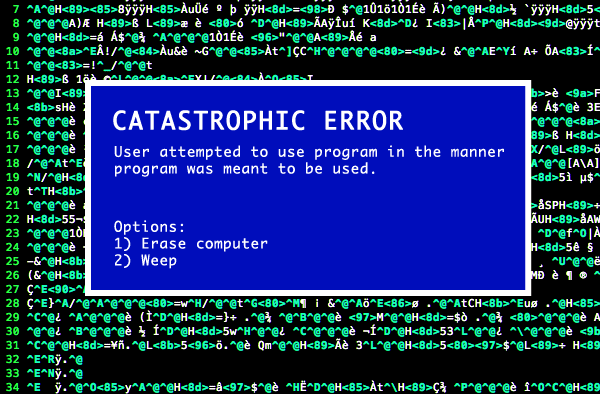Please use .ToString() responsibly
I’ve seen this kind of code a lot recently:
try
{
int i = 0;
int x = 0;
Console.WriteLine(i / x);
}
catch (Exception ex)
{
Console.WriteLine(ex.Message);
}
This results in the following output:
Attempted to divide by zero.
Unless there’s some compelling reason you need an ultra-terse version of the error, it’s almost always better to use the provided Exception.ToString() method. Compare the difference:
System.DivideByZeroException: Attempted to divide by zero. at ConsoleApplication1.Program.Main(String[] args) in C:Program.cs:line 15
This also brings up an interesting corollary: any object you build should have a meaningful .ToString() method. I expect a proper string representation of what you are, not a meaningless echo of your class name!
One object that violates this horribly is DataSet. Let’s say we have a DataSet containing a single DataTable. When you type DataSet.ToString(), what do you think should happen? Wait, wait, don’t tell me. I’ll tell you. This happens:
System.Data.DataSet
Useless. How about something that actually shows the object in string form?
+----------------------------------------------------------------+ | DataSet1 | +----------------------------------------------------------------+ | Table1 | +---------+-----------+------------------+------------+----------+ | field01 | field02 | field03 | field04 | field05 | +---------+-----------+------------------+------------+----------+ | 1 | first | NULL | NULL | NULL | | 2 | second | another | 1999-10-23 | 10:30:00 | | 3 | a third | more foo for you | 1999-10-24 | 10:30:01 | +---------+-----------+------------------+------------+----------+
Seems perfectly logical to me, but you’ll have to write your own custom ToString() implementation to get the behavior that should have been there in the first place.









